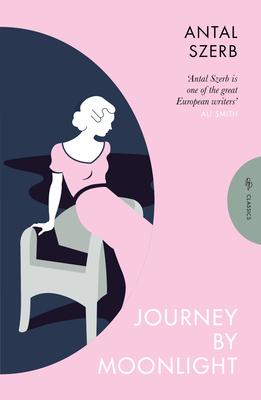Antal Szerb (1901-1945) was born in Budapest into a middle-class family that had converted from Judaism to Catholicism. He studied German and English literature at the University of Budapest, receiving a PhD in 1924. Throughout the second half of the 1920s he lived in France, Italy, and England, where he worked on his first book, An Outline of English Literature (1929). In 1933 he was elected the president of the Hungarian Literary Academy and the next year published his History of Hungarian Literature, called by John Lukacs, "not only a classic but a sensitive and profound description of . . . the Magyar mind." It was followed in 1941 by a three-volume History of World Literature. In addition to his critical writings, Szerb produced many works of translation, and published newspaper articles, essays, reviews, short stories, and novels, of which The Pendragon Legend (1934), Love in a Bottle (1935), The Third Tower (written in 1936), Journey by Moonlight (1937), Oliver VII (1937), and The Queen’s Necklace (1943) have been translated into English. Having lost his university teaching position as a result of Hungary’s anti-Semitic laws, Szerb was sent to a labor camp, where it is believed he was beaten to death. He was survived by his wife, Klára Bálint, who died in 1992.
Len Rix is a poet, critic, and former literature professor who has translated five of Antal Szerb’s books into English, including the novels
The Pendragon Legend and
The Queen’s Necklace, and most recently, the travel memoir
The Third Tower. In 2006 he was awarded the Oxford-Weidenfeld Translation Prize for his work on Magda Szabo’s
The Door (forthcoming from NYRB Classics).
Julie Orringer is the author of
The Invisible Bridge, a novel, and
How to Breathe Underwater, a collection of stories. Currently at work on a novel about Varian Fry, Orringer is a 2014-15 Guggenheim Fellow and a recent Radcliffe Fellow. Her work has been translated into fifteen languages and widely anthologized, and her first novel is being adapted for film by the director Lajos Koltai. Inquiry into her family history revealed that her grandfather, Andrew Tibor, a Hungarian forced-labor conscript, served at the same camp where Szerb died in 1945.












